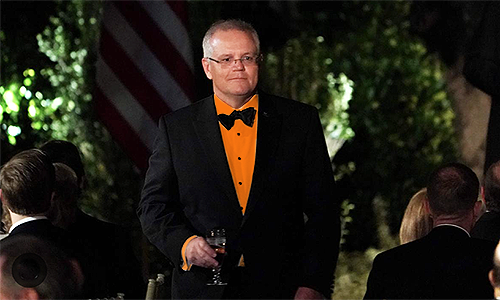New Zealand’s most important trading partner is also the nation’s biggest security headache, according to a new risk-assessment report produced by the country’s security intelligence service, or SIS. The government agency sees espionage activities orchestrated by Beijing as a ‘complex intelligence concern’ for a country that has become highly dependent on China for its economic health.
The baleful assessment appears in the SIS’s latest annual security threat environment report. While the 48-page briefing highlights a raft of other related issues such as Moscow meddling in the lives of Russian-born New Zealand residents or else officially banning local journalists (including this writer) from travelling to the Russian Federation, a lion’s share of the latest attention is on the threat allegedly posed by the People’s Republic of China (PRC).
Publicising these concerns is a new twist on the old problem
In particular, the new report accuses China of ‘foreign interference activities against New Zealand’s diverse Chinese communities’. The country’s security agency says it has recorded ‘attempts to use complex and deceptive front organisations to connect with groups in New Zealand and replace authentic and diverse community views with those approved by the PRC’.
In political circles, where the China threat has been an ongoing talking point for years, none of this constitutes breaking news. But publicising those concerns is a new twist on the old problem.
Preserving the countries’ lucrative trade relationship has long been the default position for successive governments in New Zealand, none of whom have wished to ruffle China’s diplomatic feathers – and with good economic reason. In 2008, theLabour-led administration of prime minister Helen Clark signed the rich-world’s first free trade deal with China. Concluded after 15 rounds of negotiations lasting three years, the agreement eliminated virtually all tariffs on New Zealand exports to China, effectively bestowing a most-favoured status on the East Asian powerhouse’s newfound Kiwi chum, and promising much newfound economic bounty.
At the time, Clark promised the deal would lift annual export receipts to China by as much as to £200 million a year – no insignificant sum for a nation roughly the same population size as Scotland. In the event, she understated the economic benefits of the 2008 deal, the timing of which also helped New Zealand glide through the global economic crisis at the time in relatively tip-top shape.
Today, China is by far New Zealand’s biggest trading partner with two-way trade goods and services trade totalling £28 billion in the year to December 2023. Traditional exports constitute much of this revenue, along with foreign fee-paying students and tourism receipts.
As China has sought to assert a more muscular military presence in the South Pacific, the fine print in the relationship has become a bigger political consideration. Increasingly, New Zealand’s adopted strategy of quietly balancing its newfound trade interests in the East against its longstanding military relations with the West has become less tenable.
Probably the first major public cracks appeared during the Covid years, when China spectacularly fell out with Australia, slapping sanctions and tariffs on New Zealand’s closest neighbour in response to perceived slights over the origins of the pandemic. In 2020, Beijing imposed a raft of punishing new taxes of more than 200 per cent on a slew of Australian exports, including coal, barley, timber and lobsters. Diplomatic heads in New Zealand worried that it might only be a matter of time before this country faced some sort of similar reckoning.
New Zealand has since pulled out all the stops to diversify its international trade portfolio, including a landmark free trade agreement with the UK signed last year and hailed as the most comprehensive of its type ‘that New Zealand has ever concluded’. Beyond the economic realm, the new conservative government of Prime Minister Christopher Luxon has also moved to tilt foreign policy more squarely in the corner of the UK and the United States.
In the new security report, for instance, much is made of ‘unspecified local organisations being approached by ‘a small number of entities’ – taken to mean China operatives – looking to build space infrastructure. Coincidentally, perhaps, the government here announced on the same day of the report’s publication that it had accepted an invitation to team up with Australia and the UK in the US-led space operation Operation Olympic Defender. That alliance is dedicated to deterring threats in space from hostile countries; which is largely to say, in a regional context, extraterrestrial matters having to do with China.
For its part, China describes the findings in the new report as unfounded. The republic’s embassy in Wellington says it’s regrettable that ‘certain forces remain unwilling to see the healthy and stable development of China-New Zealand relations’. But when the forces include the country’s own security establishment, any future development of those relations appears booked for interesting times.









